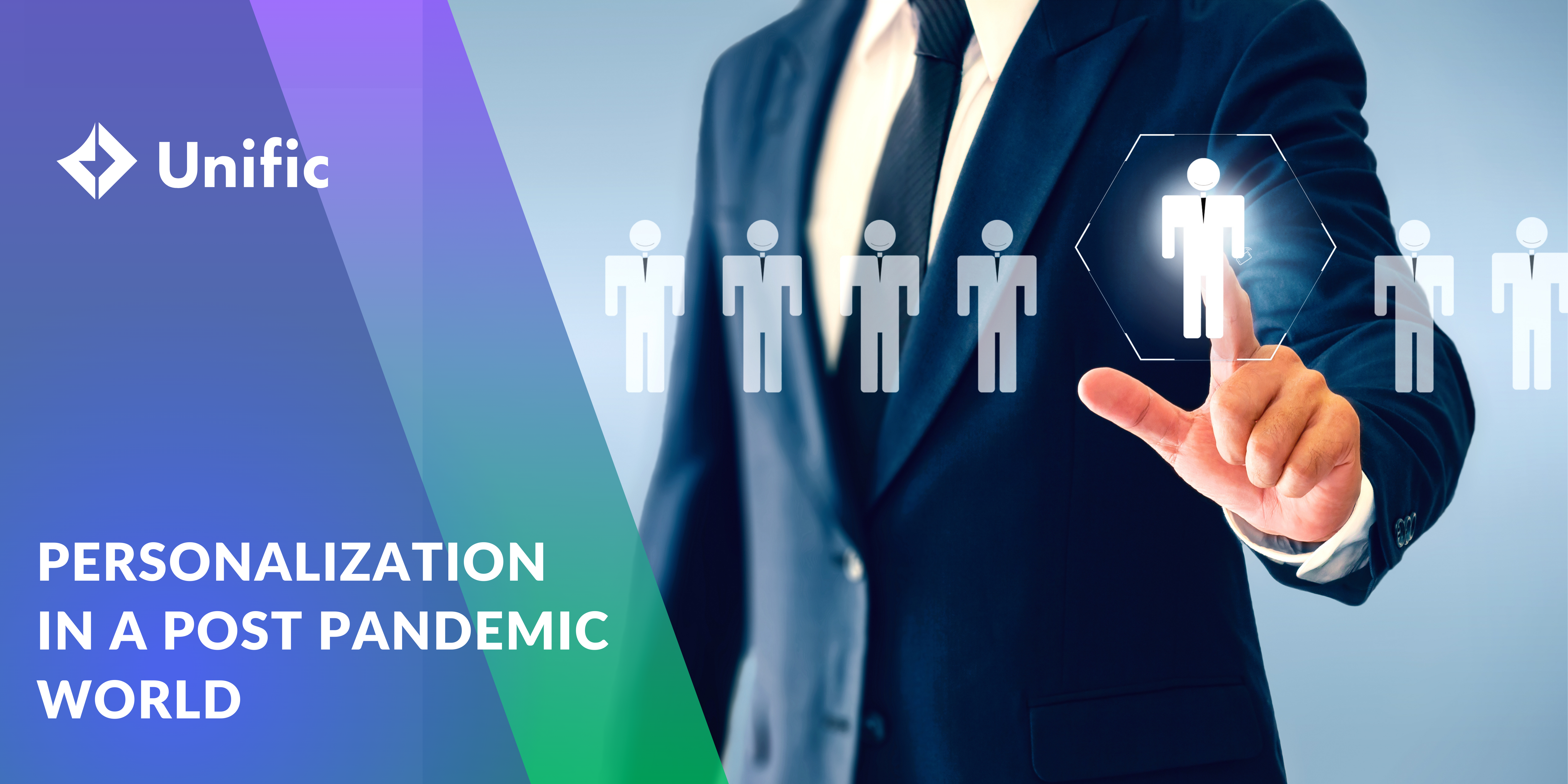Get E-commerce insights and updates in your inbox.
Expectations for Purchases in a Post-Pandemic World
Amidst the aftermath of the COVID-19 pandemic and the surge of the digital revolution, the importance of personalization has soared to unprecedented levels. An astonishing three-quarters of consumers have transitioned their loyalty to new stores, products, or buying methods during the pandemic, highlighting the ever-changing nature of consumer behavior. Now, with 71 percent of consumers anticipating personalized interactions and 76 percent expressing frustration when this expectation is unmet, the pressure on companies to deliver customized experiences has reached an all-time high. (McKinsey & Company, 2021)
Personalization is not just about satisfying consumers—it is a catalyst for driving revenue growth. Companies that embrace personalization outperform their slower competitors, generating a staggering 40 percent more revenue. This is not just true for e-commerce, brick and mortar stores are facing this reality as well. As consumer loyalty continues to evolve, the demand for personalization has become an essential requirement, with 75 percent of consumers adopting new shopping behaviours in the past 18 months.
Consumer attitudes toward personalization are evolving at a rapid pace, driven by the increasing desire for individual recognition and tailored experiences. In today's hyperconnected world, consumers expect businesses to go beyond generic interactions and truly understand their unique preferences and needs.
To meet these expectations, businesses must employ advanced data analytics and customer segmentation strategies. By harnessing the power of data, companies can gain valuable insights into each customer's preferences, purchasing history, and browsing behavior. RFM data, like the one calculated through our deep data sync product can be uniquely powerful to being your segmenting efforts. Armed with this information, businesses can create personalized experiences that resonate with each individual, forging a deep sense of connection and loyalty.
Personalization is a constantly evolving playing field.
In this era of heightened personalization, simply addressing consumers by their name in an email or offering basic product recommendations is no longer enough. Customers now expect businesses to anticipate their needs, offer relevant suggestions, and provide tailored promotions that align with their interests. Our Dynamic Coupons and Dynamic Segments products are built around this idea, designed to arm you with powerful tools to create tailored experiences and offers every step of the way. Whether it's curating a personalized homepage for an e-commerce website or recommending specific products based on previous purchases, the possibilities for personalization are endless with the right tools.
Overall, the evolving consumer attitudes toward personalization underscore the need for businesses to prioritize individual recognition and tailored experiences. By doing so, companies can not only meet customer expectations but also foster stronger relationships, drive revenue growth, and gain a competitive edge in today's ever-evolving consumer landscape. As businesses adapt to the post-pandemic era, personalization remains a crucial aspect of customer engagement that should not be overlooked.
Significant rewards for personalized strategies
Positive experiences, such as post-purchase check-ins or personalized content, create a strong connection between consumers and brands. The impact of getting personalization right is evident, with 76 percent of consumers citing it as a key factor influencing brand consideration, and 78 percent claiming it increases the likelihood of repurchasing.
The benefits of personalization extend beyond immediate transactions, fostering repeat engagement and long-term loyalty. Companies excelling in personalization not only experience a revenue lift of 10 to 15 percent but also witness better customer outcomes, including improved retention and loyalty. Even industries traditionally lacking direct customer access, like consumer packaged goods, can harness personalization as a revenue accelerator. The research suggests that, regardless of industry, prioritizing customer intimacy creates a competitive advantage that grows with maturity.
Personalization is not just a marketing strategy; it's a fundamental aspect of customer engagement that defines success in the post-pandemic era. The ability to tailor offerings and outreach to the right individual at the right moment is a powerful tool that businesses must leverage to thrive in an ever-evolving consumer landscape.
Bibliography:
https://www.mckinsey.com/capabilities/growth-marketing-and-sales/our-insights/the-value-of-getting-personalization-right-or-wrong-is-multiplying

